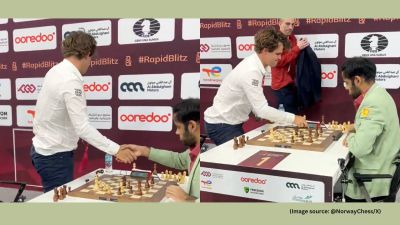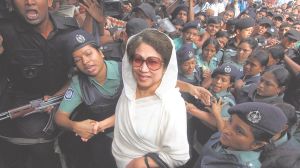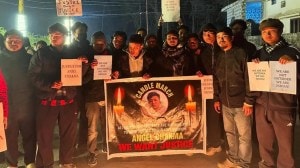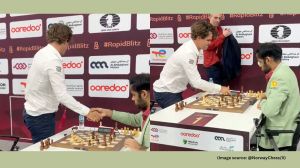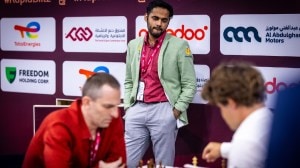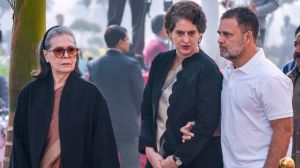When babus decide cases
While the government is forging ahead with its October 31 decision to introduce a unified licence in the telecom sector, the Supreme Court h...

While the government is forging ahead with its October 31 decision to introduce a unified licence in the telecom sector, the Supreme Court has admitted a petition that indirectly seeks to roll back the whole initiative. For all their reservations about it, cellular operators did not touch upon the unified licence which clubs them with WLL operators. But if the court eventually allows the petition filed by cellular operators, then the lakhs of WLL customers who have sprung up around the country in less than a year will be in danger of being denied mobile phone facility even to make local calls. However improbable, this extreme scenario is a possible fallout of the petition taken on board by the Supreme Court on November 10.
This despite the fact that the petition is actually about a verdict 8212; more specifically, the majority judgment 8212; passed in August by the Telecom Disputes Settlement and Appellate Tribunal TDSAT. The majority judgment, signed by two non-judicial members of the TDSAT, upheld a decision taken by the government in January 2001 permitting WLL operators to provide limited mobility thereby, allowing handsets to be used for making calls throughout the local area. Cellular operators want the court to set aside the majority verdict as it encroaches on what was purely their domain. They instead urged the court to uphold the minority verdict passed by the TDSAT chairman and former Supreme Court judge, D.P. Wadhwa, who set aside the government8217;s decision granting limited mobility to WLL phones.
The divide in the TDSAT on this politically sensitive issue between the judicial member and the two non-judicial members seems to vindicate the concerns expressed recently by Chief Justice V.N. Khare in the context of the newly-constituted Competition Commission. Since the Competition Commission is meant to perform quasi-judicial functions as well, Khare slammed the government for its move to appoint a bureaucrat as its chairman. The implication of Khare8217;s attack was that only a judicial member could be trusted to display independence and the expertise to adjudicate. To be fair, several ex-bureaucrats are reputed to have performed creditably as members of tribunals. But R.U.S. Prasad and P.R. Dasgupta, the TDSAT members who upheld the government8217;s decision on limited mobility, do not seem to belong to that category. From the viewpoint of judicial rigour, their judgment compares poorly with that of Justice Wadhwa, the verdict they overruled.
Consider the conflicting rulings on what was surely the most fundamental contention of cellular operators. That the licence given to cellular operators was not a largesse. Rather, the licence agreement was a contract that was binding on both sides. Especially because, on the basis of the assurances given to them by the government through the licence, cellular operators invested thousands of crores over the years. So, they alleged that their contractual rights were breached by the government8217;s subsequent decision to let WLL operators provide the same service under the guise of limited mobility.
Agreeing with the argument that the licence was a contract, Justice Wadhwa ruled that cellular operators had 8220;legitimate
expectations that the licence agreement which is a solemn document would not be breached.8221; Accordingly, he held that the mobile service granted to WLL operators, 8220;howsoever limited8221;, was in breach of the government8217;s licence agreement with cellular operators. Wadhwa also said that the express terms of the licence could not be given 8220;a different meaning by referring to high-sounding words like 8216;march of technology,8217; 8216;fast changing developments in Telecom Sector8217;.8221;
How do Messrs Prasad and Dasgupta counter this judicially reasoned finding that the licence was a contract? Simple, they don8217;t say a word on whether the licence was a contract or not. Instead, treating the licence as a largesse, they ruled that the government had the power to unilaterally modify the terms of the licence. They said this on the basis of an enabling clause which provided that the licence could be modified in the interests of the general public. As a corollary, the two members held that there was 8220;no hard evidence to believe8221; that the government8217;s decision regarding limited mobility was against public interest. Thus, in the name of public interest, the TDSAT decided in favour of one private interest glossing over the contractual rights of another.
What is even more dubious about the majority verdict is its attempt to discount Justice Wadhwa8217;s detailed indictment that the government8217;s sudden decision was based 8220;on extraneous considerations8221;. The two members acknowledge 8220;the extraordinary speed of the decision-making.8221; But then they assert that to establish mala fides, 8220;one has to have more concrete and substantial evidence.8221; It remains to be seen what the apex court will say on the specious reasoning applied by the TDSAT8217;s non-judicial members.
Photos
- 01
- 02
- 03
- 04
- 05


